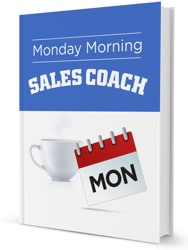Overcoming Self-Limiting Beliefs
Many of us carry around negative beliefs (head trash) that keep us from being successful. As Albert Einstein said, “Imagination is a preview of life’s coming attractions.” That means if you think you can, you most likely will, but if you think you can’t, the odds will be stacked against you.
To quote Henry Ford, ““Whether you think you can, or you think you can’t–either way, you are right.” Think about that. It’s so easy to say, “That’s a very big quota to achieve in this economy. I don’t know how I’ll make it.” Then at the end of the year (when the quota was missed), it almost feels good to say, “I told you so. That quota was just too aggressive in this economy. I told you it was too hard.” You were “right,” but that’s the only thing you can “feel good” about because you still missed quota. So sometimes we rationalize that it’s easier to make excuses for poor performance, blaming other people or circumstances, than it is to make an effort to overcome obstacles and improve. And it’s all because of our head trash.
Funny the way things work. Beliefs cause us to act in a certain way, which determines our results. Our results often seem to reinforce our beliefs.

Here’s a short list of common beliefs that negatively impact salespeople’s performance…and the results they cause.
- “I can’t call on company presidents or C level executives. I’m just not at their level professionally.” (You will call at lower levels in the organization, damaging your ability to discover the real issues, and eliminating the possibility of getting a decision when you present your solutions.)
- “Business is very competitive, and I’ve got to have the best prices to beat my competition.” (You will prematurely determine that price is the most important issue to everybody, and sell on price alone.)
- “I understand why people need time to ‘think things over.’ They need time to evaluate their options. That’s how I make decisions.” (You won’t be able to ask for a decision when you deliver a proposal, allowing people to stall for time, and allowing the opportunity slip away. Remember, time kills deals.)
- “I need to educate my prospect about what we do.” (You’ll do all the talking during the sales interview. You’ll present too early, and you’ll look like every other salesperson who when you need to focus on the challenges the prospect wants you to help
- “Asking a lot of questions is rude and might upset my prospect.” (You’ll do all the talking and your prospect will think you’re only concerned with making a sale, as opposed to helping him resolve his business challenges. It’s your job to ask questions and get a good understanding of the prospect’s issues.)
- “I just don’t have enough time for prospecting.” (Then you won’t have enough appointments and your income will suffer. Prospecting is Job #1.)
Self-Study Assignment: These non-supportive beliefs are common with salespeople. Which ones do you have? Try to create more positive beliefs in the form of affirmations about any that affect you. (“Prospecting is Job #1. I set aside time every day to make sure I have enough appointments to keep my pipeline full.”)


